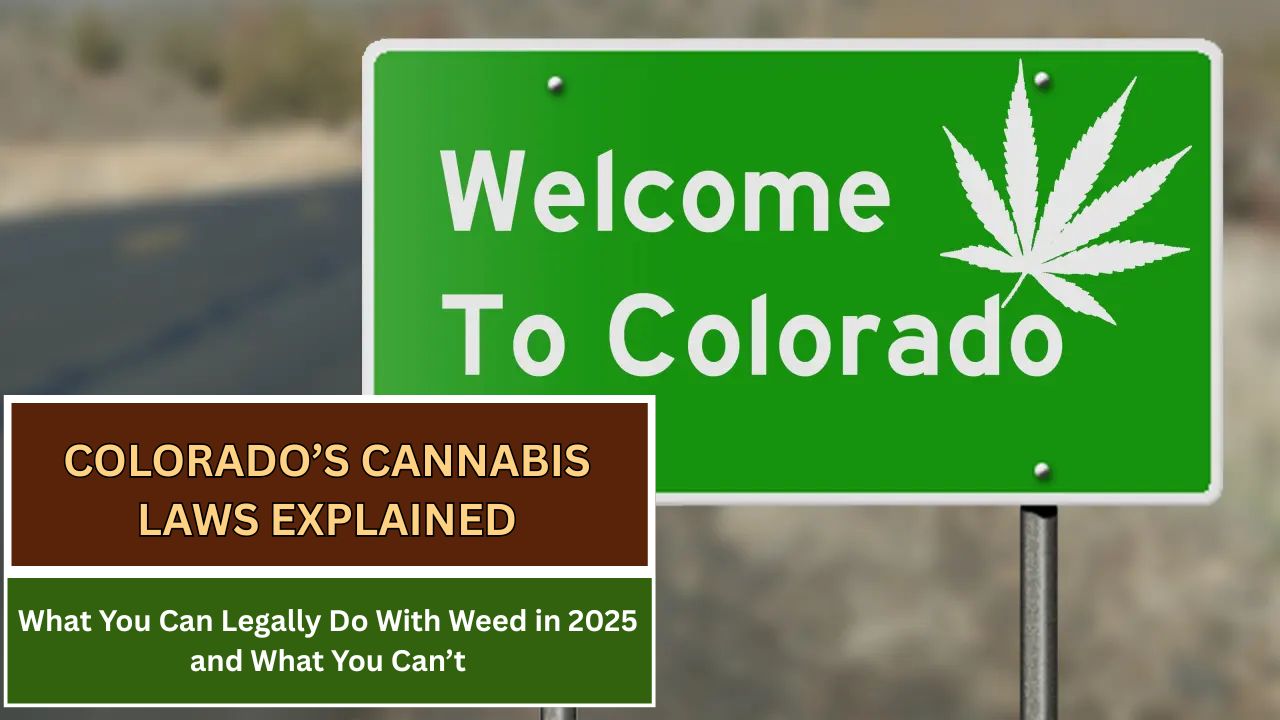Colorado was the first U.S. state to legalize recreational marijuana, setting a national precedent in 2012 with the passage of Amendment 64. Since then, the state has developed a mature and regulated cannabis market, serving both residents and out-of-state visitors.
Whether you’re a resident, a newcomer, or a tourist planning to visit the Rocky Mountains, understanding Colorado’s cannabis laws is essential to stay within legal boundaries. Here’s a detailed breakdown of what’s legal, what’s not, and how cannabis has shaped the state’s economy and public policy.
What’s Legal in Colorado?
Recreational and Medical Use
As of 2025, adults aged 21 and older can legally:
- Possess up to 1 ounce (28 grams) of marijuana flower.
- Carry up to 8 grams of marijuana concentrate.
- Possess up to 800 milligrams of THC in marijuana-infused products like edibles and tinctures.
Colorado also permits medical marijuana use under separate guidelines, established in 2000. Patients must be registered with the Colorado Department of Public Health and Environment.
Home Cultivation Rules
Colorado residents are allowed to grow up to six marijuana plants per adult, with a maximum of 12 plants per household, regardless of the number of residents. However, no more than three of these plants may be mature (flowering) at one time.
Cultivation must occur in an enclosed, locked area and cannot be visible to the public.
Legal Sales and Dispensaries
Marijuana can be purchased at state-licensed dispensaries, which are widespread throughout the state. As of April 2025, even cities that previously banned recreational sales—like Colorado Springs—have joined the market, with 22 licensed dispensaries opening for business.
Consumers can search for licensed retailers via the Colorado Department of Revenue’s Marijuana Enforcement Division (MED).
What’s Still Illegal in Colorado?
Despite broad legalization, several restrictions remain in place:
Public Consumption
It is illegal to consume marijuana in public places, including parks, sidewalks, restaurants, and federal lands such as national parks. Consumption is only permitted on private property with the owner’s consent.
Some businesses have opened private cannabis lounges, but these must comply with strict local regulations.
Driving Under the Influence
Driving under the influence of marijuana remains a criminal offense in Colorado. Law enforcement uses blood tests and observational tools to determine impairment. Penalties for DUI (Driving Under the Influence) can include fines, license suspension, and jail time.
The Colorado Department of Transportation offers public education campaigns and resources to reduce drug-impaired driving.
Federal and Interstate Transport
Although marijuana is legal in Colorado, it is still illegal under federal law. Transporting marijuana across state lines is a federal offense—even to or from other states where it is legal.
This federal conflict also affects:
- Federal jobs or security clearance
- Travel through TSA at airports
- Immigration or visa status for non-citizens
Economic Impact of Legalization
Since recreational legalization began in 2014, Colorado has generated over $1 billion in cannabis tax revenue. These funds support education, mental health services, infrastructure, and public safety initiatives.
In Colorado Springs, where recreational sales only began in 2025, officials estimate around $2 million in new tax revenue, which will fund community health and safety programs. (KKTV)
Colorado remains one of the top five states in cannabis sales, often used as a model for national cannabis policy development.
Health Concerns and Public Awareness
While the legal market has created jobs and revenue, health professionals have raised concerns about:
- Cannabis use disorder
- High-potency concentrates leading to overconsumption
- Cannabinoid Hyperemesis Syndrome (CHS): A rare condition causing vomiting in heavy users
In 2024, Axios reported that public health officials are increasingly pushing for stricter regulation of potency and improved consumer education.
Final Thoughts
Cannabis is fully legal for adults in Colorado under a structured and regulated system. However, understanding the boundaries of legality—from where to consume it to how much to possess—is critical.
This article has been carefully fact-checked by our editorial team to ensure accuracy and eliminate any misleading information. We are committed to maintaining the highest standards of integrity in our content.

Outside of work, he enjoys playing chess, following cricket, and writing short stories. His commitment to integrity and in-depth analysis strengthens OTE News’ mission of providing trustworthy journalism.




